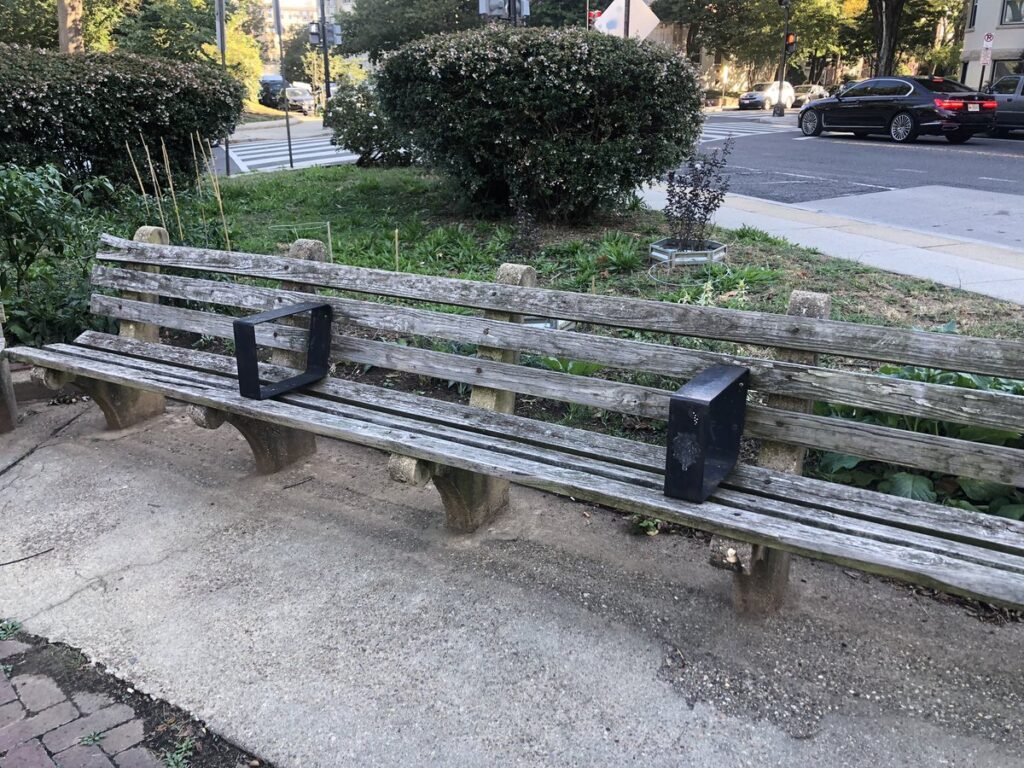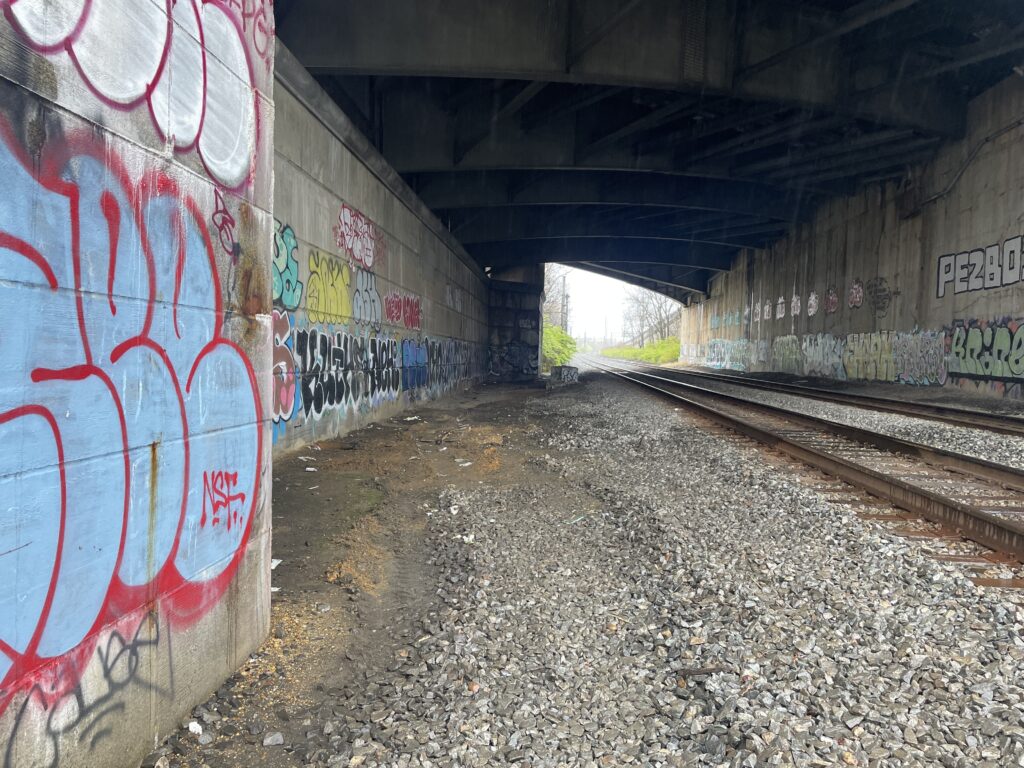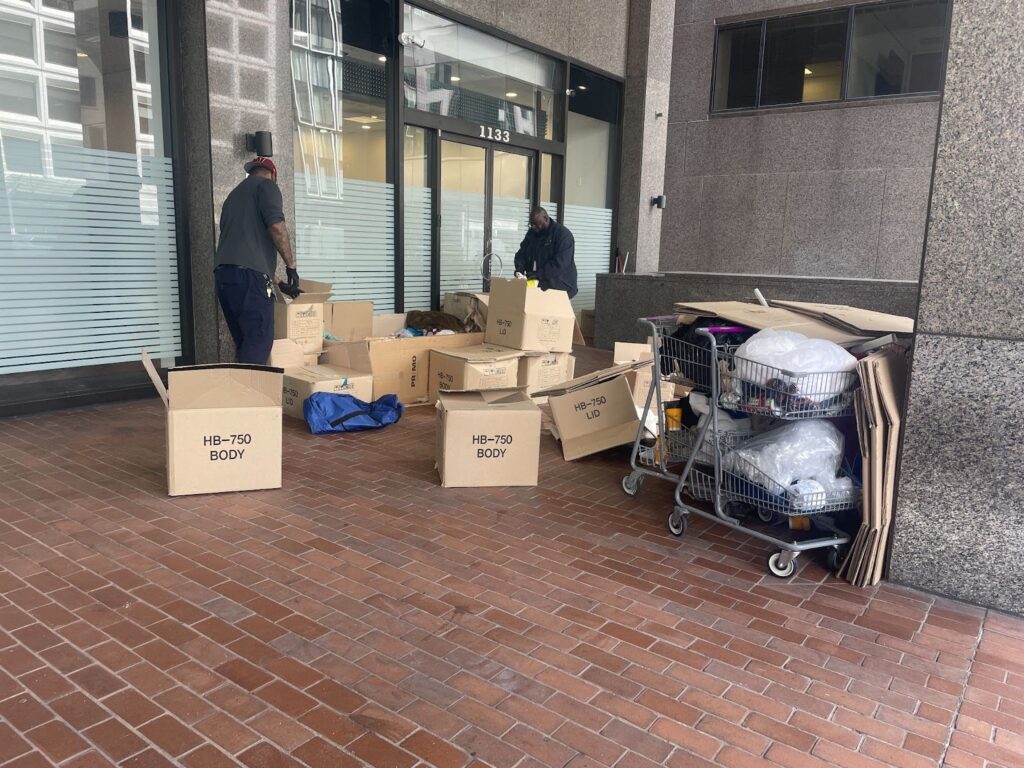A profile about me and my presence in McPherson Square Park in the Feb. 28 issue of Street Sense ended with the detail that I previously campaigned to be president of the United States. That’s where this introduction starts.
I’m one of many presidential candidates the media never told you about. You’ll find me listed on the Federal Election Commission (FEC) website in the first 100 candidates for the 2008 election cycle. You can see candidates as far back as 1980 by changing the year in the link address: https://www.fec.gov/data/candidates/president/?election_ year=2008&cycle=2008&election_full=true (Change “=2008” to whichever election year you want to review.)
Though I still want your consideration, I no longer maintain filing with the FEC; this campaign is different. One of my signs at the park says “Ask how reading and math stop political corruption.” (Just below the yellow “Donations” sign.)
This article, as well as others to follow, demonstrate how we already have the tools to help us find solutions to protect our rights and make Clean Honest Government our reality in this generation — even in this election year, if we work at it together. Those roadmaps are the Declaration of Independence and the Constitution of the United States of America.
If you have camped or slept in a public space within the busy parts of a city — or have thought about doing so — this article is for you. It is also for everyone who finds those acts unsightly. Let’s focus on our rights, not just as United States citizens, but simply as humans, and whether those rights are constitutionally protected.
First of all, a “right” is an action any person can exercise without unjustly violating another person or their property. The violation of a law while exercising that right is also covered.
To determine what rights are constitutionally protected, we need to consider both what is written into the Constitution and what is NOT written into it.
What is written is the easy part. Nearly everyone is familiar with several of these rights.
As for what rights are not written into it, we must rely upon the Ninth Amendment, which states: “The enumeration in the Constitution, of certain rights, shall not be construed to deny or disparage others retained by the people.”
In order to present a stronger defense in court, we must be able to correctly identify those unlisted, unwritten rights that we retained. With this, we must know which came first, the right or the law prohibiting it. (“The chicken or the egg” is another story.)
The right came first. It was after people began abusing others’ rights on a large scale that the government passed laws to regulate or prohibit the actions of a specific right.
We must strive to comprehend the meaning of the words used in the Ninth Amendment according to what they meant in the early 1700s, before the Constitution was written. For this, I use a 1785 dictionary that the Internet Archive digitized. Let’s focus on five words; three from the Ninth Amendment; the other two clarify a word from the definition of “disparage.” OLD-DICTIONARY TIME:
- Construe: To interpret; to explain; to show the
meaning. - Deny: To refuse; not to grant.
- Disparage: To treat with contempt; to mock; to flout;
to reproach. - Reproach: Censure; infamy; shame.
- To Reproach: 1. To censure in opprobrious terms, as
a crime. 2. To charge with a fault in severe language. - When the government passes a law that denies you some
part of a right; such as sleeping in public or camping on public
grounds, they construe various other parts of the Constitution
to deny, to disparage, or to limit your right to sleep and your
right to camp. (Remember, the Ninth Amendment explicitly
states that rights written in the Constitution shall NOT be
construed to deny or disparage others retained by the people.)
And yet, modern law disparages camping on public property, treating the individual with contempt and reproach. It criminalizes the person for doing nothing more than exercising a right protected by the Ninth Amendment.
We retained every right not specifically listed in the Constitution, so long as when exercising that right we do not unjustly violate the rights, or property of others, which includes using public space.
Society, by way of the government, possesses two constitutional remedies when it comes to people violating the rights of others. One, when constitutionally applied, makes it less desirable to violate others’ rights; it is the Thirteenth Amendment. Yes! This unfortunately is a hotly contested topic. The two paragraphs here will not do it the justice it deserves.
Right from day one to present, government abused this power by favoring the wealthier people who routinely violate the rights of those less fortunate. Constitutionally applied, it punishes the billionaire and the beggar equally for violating others’ rights.
The other remedy available to society and government is Article 5. Government may ask the citizens for power to infringe, deny, or disparage any given right when society abuses a right (as opposed to when a few individuals do). But, it has not. This negligence is the worst type of criminal activity by government. The Declaration calls it tyranny, and despotism. The Constitution defines it as treason!
I welcome comments and challenges of accuracy: danielmkingery [at] gmail [dot] com. Thank you.








